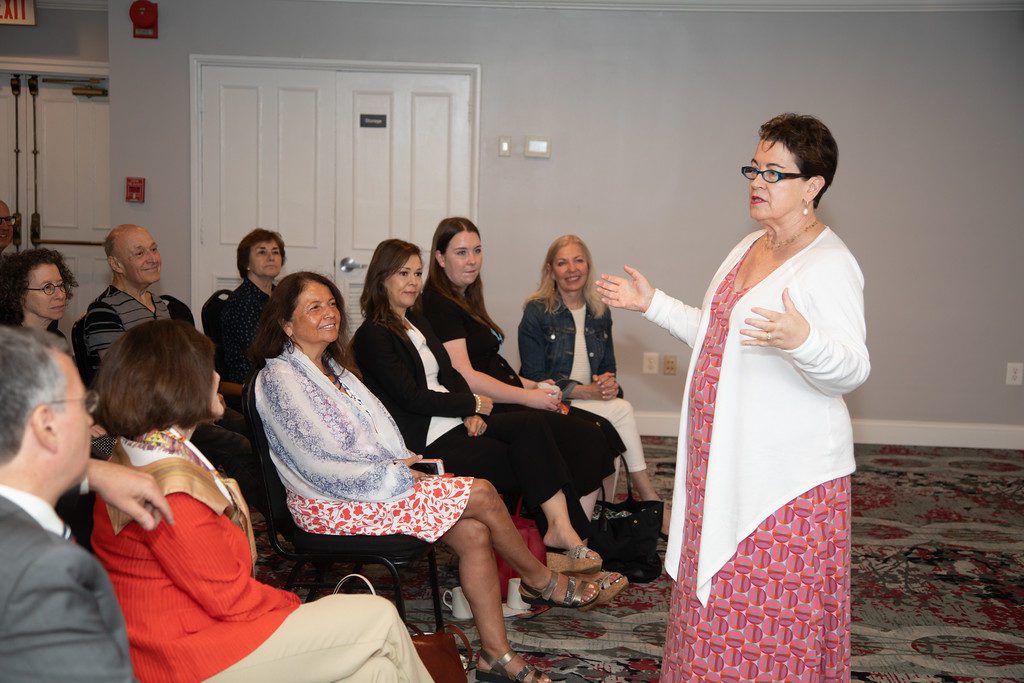Smith: Now Is the Best Time to Be Making Theater
By • June 17, 2019 0 751

No doubt about it, the District of Columbia is changing. The number of people who live and work here is rising, and its population is changing, too.
Everybody talks about engines of change in whole neighborhoods: big-box stores and new restaurants every minute, sports stadiums and condos and clubs and grocery chains and shopping districts.
But how about theaters? You know, where people stage plays, bring you Shakespeare and sharp, cutting-edge dramas, experimental work, comedy tonight and, yes, even musicals.
They’re agents of change in Washington, for sure — examples abound. Before there was a Whole Foods in the economically decimated area around 14th and P Streets NW, there was a burgeoning little theater district that included Source Theatre Company, Studio Theatre and the occasional vagabond group operating there. In its new digs, Studio, under Joy Zinoman, made it a cultural destination and wholesale change (ongoing) followed.
Before there was ever a CityCenterDC, and even before the current Washington Convention Center arrived in the struggling downtown area, there was the Shakespeare Theatre Company, first at the Lansburgh, then at the Harman, brought there by Artistic Director Michael Kahn. In STC’s wake came new and permanent digs for culturally and politically rowdy Woolly Mammoth Theatre, under Howard Shalwitz, on D Street NW.
Zinoman, Shalwitz and most recently Kahn have all retired. Now consider Molly Smith, who became the third artistic director at venerable Arena Stage in 1998. Smith was the featured speaker at The Georgetowner’s June 13 Cultural Leadership Breakfast, held at 1310 Kitchen & Bar by Jenn Crovato.
Smith seems not to have changed much in the intervening 21 years. With presence, wit and intelligence to spare, she can dominate a room without even firing a starter’s gun. And she knows something about engines of change, because in the city’s Southwest Waterfront area, Arena Stage is nothing if not a purring dynamo.
If you’ve been in Washington for any length of time, you think of the SW suffix and you think of the fish market, rows of watercraft, sometimes pricey restaurants and a tower-sprinkled residential area of apartments, condos and homes.
And you think of Arena Stage, which was for a long time — before the Kennedy Center, before all the other theaters in the city and the suburbs — the progenitor and pretty much lone exemplar of noncommercial theater in Washington, with legendary founder and regional theater Zelda Fichandler at the helm.
Smith has done a lot and seen a lot at Arena, taken risks and staged plays that excited, puzzled, outraged and engaged audiences from the start, including the challenging works of playwrights like Paula Vogel and Sarah Ruhl.
None of that compared to her leadership role in the spectacular and beautiful renovation of the new Arena Stage — now at the Mead Center for American Theater, which opened in 2010.
That, and the opening production of “Oklahoma,” would have been daunting for anyone. But maybe not. If there is a quality or two that seems self-evident about Smith, it’s a certain fearlessness, not the in-your-face kind, but the kind that persuades others to invest, a “Let’s try it” kind, a “Why not?” kind.
“To me,” she said at the event, “this is the most challenging time to be making theater in the country. It’s the absolutely best time. It’s the best place for the expression of important feelings and beliefs. We have here one of the best, largest and most gifted theater communities in the country, which brings with it the opportunity for collaboration.” And in the nation’s capital, where so much of importance is concentrated, she added: “We have an audience that is sophisticated, and, I think, hungry, not just to be entertained but to participate, to learn, to engage.”
Calling Arena “a critical part of the surrounding community,” she said: “I think we’ve brought a lot to the change that is going on and continues to do so. But I might add this: while Arena has a responsibility here in terms of the community, so do the developers and builders who have changed the area. They have responsibilities, too, to participate and engage with the theater as the theater has with the community.”
On the topic of community responsibility, she said: “I think we are in the forefront of bringing theater that dealt with race, civil rights and multicultural issues to the stage,” giving next season’s festival focusing on playwright August Wilson as an example. Wilson, who wrote a 10-play history of a black neighborhood in Pittsburgh, will be represented with “Jitney,” “Seven Guitars” and a variety of related programming.
“I think theater — most performing arts groups — have to stay on top of changing times, what’s happening and what is going on in your communities,” she said. “We deal in daily life, in contemporary times as well as history. It’s a difficult task, but also a welcome challenge.”
Which brings us to musicals. She laughed when asked about the “issue” of musicals. She pointed to Arena’s upcoming production of “Newsies,” about a turn-of-the-century revolt of newspaper boys, which she sees as a kind of children’s crusade relevant to current events.
“I used to be one of those people, I admit, that didn’t think highly of musicals. Didn’t think it was real theater, that it was serious enough and so on,” she said. “Well, a friend, when I came to Arena, finally talked me into directing a musical. It was ‘South Pacific.’ And let me tell you, let me tell you,” she said, “I was born to direct musicals, born to it. Absolutely!”
Absolutely is right. The experience made her embark on what she termed at the time “an exploration of the American musical.”
That, too, is part of her resume: Molly Smith, Explorer.

